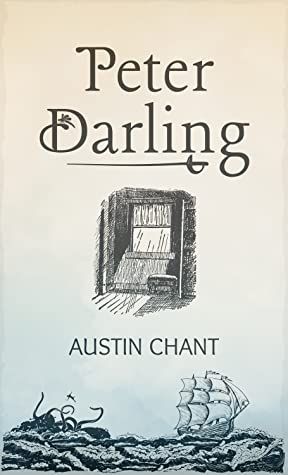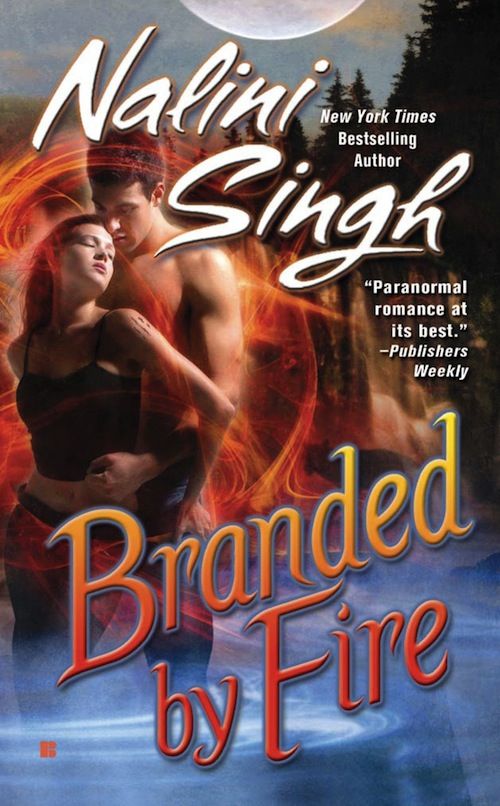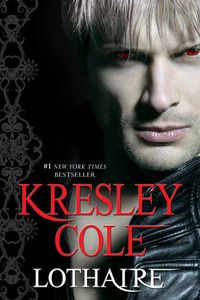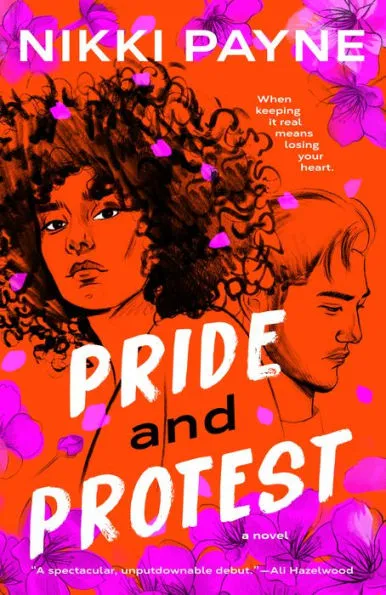This content contains affiliate links. When you buy through these links, we may earn an affiliate commission.
Romance is criticized for being formulaic and predictable. Here at Book Riot, many of us think that’s the best thing about it. There are two main reasons the books get this criticism: the happy ending in every book and the extensive use of tropes. That’s why we’re tackling the enemies-to-lovers trope today, which covers both of those.
One of the best things about the romance genre is the promise of the premise. I know that there will be a happy ending, that the emotional journey I’m about to go on has a clear path, and that my favorite books are going to have a whole pile of tropes. Tropes are common themes or devices used in storytelling. Romance has many that show up again and again. Think, “Oops! There’s not enough room in this cabin during a blizzard!” The three tropes here are only one bed, forced proximity, and snowed-in. If I can get three in one sentence, then you understand how they get layered in a novel. While some may say they are overused, tropes are what help romance readers find their next read or find other readers in the community who love the same themes.
What is the Enemies-to-Lovers Trope?
Enemies-to-lovers is one of the most popular tropes in romance — and in all storytelling. In this rhetorical device, two (or more!) characters start the book as antagonists and actively work against each other. Then, through the magic of storytelling and the thin line between hate and love, by the end, they’ve become love birds. Within this overarching theme, there are plenty of subtropes as well: rivals-to-lovers and childhood friends-to-enemies-to-lovers, for example.
Now here’s where things get a little sticky. Enemies-to-lovers is assigned to all kinds of books it doesn’t belong in because rivals-to-lovers is a different, but very similar, trope. One of the most well-known and mislabeled enemies-to-lovers books is The Hating Game by Sally Thorne. Excellent book, amazing tension, beautiful character development…but these people are not enemies. In this book, two assistants to co-CEOs at a publishing company compete for a promotion. As they do, they fall madly in love.
A key difference is that the characters are competitors more than enemies. It’s difficult to find a true enemies-to-lovers trope in contemporaries because the stakes just aren’t high enough. That’s not to say they don’t exist. Of course, in the right author’s hands, all the trends can be thrown out the window. Courtney Milan’s Hold Me, for example, is a contemporary where the couple hate each other in their real-life jobs, but had unknowingly been building a relationship online under pseudonyms.
In historical, fantasy, and paranormal, it’s much easier to raise the stakes. If we don’t work together, then the world will end or the common evil will take over or a reputation is ruined, thereby ruining the entire family’s future. There is much more to lose than, say, missing out on a promotion. An exception to this is books about criminals. A motorcycle gang can make the stakes of a story high with threats of violence, kidnapping, or financial ruin. So can a mafia or dark romance: groups with clearly defined enemies.
A Little History of the Trope
One of the oldest tropes in human history, it’s unclear where exactly the enemies-to-lovers trope got its origins. It could have started with the Greek myth of Pyramus and Thisbe, a star-crossed lovers tale where their families were sworn enemies. Despite what their families taught them and what they wanted for Pyramus and Thisbe, these two still found each other, wrote sweet notes and pushed them through the wall that separated them. If this is ringing some bells, Shakespeare’s Romeo and Juliet has the same plot and the same trope.
Another example of enemies-to-lovers in ancient texts is in the The Epic of Gilgamesh, thought to be the oldest story in writing, found on clay tablets. The epic is from ancient Sumeria and written in cuneiform script. It’s also a homoerotic tale about Enkidu, a demon, and Gilgamesh that ends unhappily. But before that, the two find a friendship, possibly more, and are no longer enemies.
In more recent, romance-specific history, Pride and Prejudice by Jane Austen is thought to be the seminal text that models enemies-to-lovers. It could be argued that this classic is a rivals-to-lovers, but the fact that Elizabeth Bennett’s entire future, and arguably life, is dependent on what kind of match she makes, the stakes high enough to warrant the enemies-to-lovers tag. Countless enemies-to-lovers books have used the Pride and Prejudice model to help them tell their own story.
Why is the Enemies-to-Lovers Trope So Popular?
First, conflict in enemies-to-lovers stories has to be high. Conflict drives the narrative. It creates anticipation for the reader that makes us want to keep turning pages. The classic “will they, won’t they” push-pull keeps us immersed in the world that the author has created for us. Building tension between not only the characters but within the plot is crucial. That’s why, so often in this trope, the characters are paired with a difficult task in addition to the central love story. They must complete a mission or save a kingdom or plot revenge. There’s a thin line between love and hate. They are both such powerful emotions, and often people can have similar reactions to them. Passion translates well on the page and gets readers interested and invested. This is true for passion between the characters, but also passion for the work they are doing.
Second, the story starts with transparency. We get dropped straight into the feud and see characters at their worst. We know from the jump what these characters’ negative attributes are, we’ve seen them through the eyes of someone who hates them. Then, throughout the story, we learn that the characters are more than their flaws. It could be that they’re traumatized, acting defensively, or protecting another person. There is a logical reason that characters do what they do, whether it’s based on fear or another motivation. Characters are able to go into relationships with their enemies because they don’t have rose-colored glasses on and see the other person’s faults clearly. When the relationship eventually does start to develop, they aren’t overlooking obvious flaws.
Finally, the last reason is the real reason readers want more of the enemies-to-lovers trope: it shows that love wins. Romance readers know that there will be a happy ending. We know that against all odds, these two clueless people are going to end up together. We are able to tolerate a lot of disrespect, insults, or betrayal between characters when we know it’s all going to work out somehow. Finding out how is the exciting and interesting part, the part we can’t get enough of.
Start with These Enemies-to-Lovers Books
Quick note: while all these books can be read alone and understood, some are part of a larger series, and reading the proceeding books will enrich your reading experience through knowing more about the world and backstory. I’ll specify which are which in the summaries.


A Kingdom of Dreams by Judith McNaught
This medieval historical romance novel is one of the best enemies-to-lovers stories of all time. Scottish beauty Jennifer Merrick is the chieftain’s daughter, and she’ll do anything for her clan, even if they have turned against her. Englishman Royce Westmoreland, Duke of Claymore, or “the Wolf” is renowned for his ferocity and loyalty to the king that the Merrick clan is fighting. Jennifer hates him with a deep passion, and he can’t stand the stubborn girl either. But we know that the line between love and hate is very thin indeed. This book is a standalone.


Peter Darling by Austin Chant
In this fairytale retelling of Peter Pan, legendary enemies Captain Hook and Pan himself become lovers. The thing most folks don’t know about Peter Pan is that he always planned to return to Neverland after leaving with Wendy. What he didn’t plan on was Neverland not needing him in the same way when he got back ten years later. The only person who missed Peter is Hook, who can’t wait to reignite the friction between them. When another war between the lost boys and pirates begins, the fighting becomes too real. The hate between Peter and Hook blurs into something more complicated and more sexy.


Branded by Fire by Nalini Singh
Sixth in the Psy-Changeling series, this paranormal romance takes enemies-to-lovers to the next level. Mercy, a sentinel in her pack, is feeling the pressure to mate. Lieutenant Riley isn’t only someone she hates, but he’s also a different shifter species. She’s a cat, and he’s a wolf. Both Mercy and Riley are leaders in their packs, and neither is willing to submit to the other. When a changeling researcher is kidnapped, the two must work together to save him. Along the way, the difference between hatred and passion gets blurred, a conspiracy gets uncovered, and feelings run high.


Lothaire by Kresley Cole
The eleventh book in the Immortals After Dark Series is legendary. I think you can follow the story in this one without reading the previous books, but you won’t get how epic this love story is. Lothaire appears in previous books, making a notorious name for himself. One of the oldest vampires on Earth, the Enemy of Old is plotting revenge and has been for centuries. He thinks he’s found a perfect sacrifice in Ellie Peirce, an Appalachian teenage human. But when he goes to her, he senses that she’s his fated mate. Lothaire, the most ruthless vampire, can’t stand the idea that his fated one is a lowly human. For her part, Ellie is just trying to survive prison and death row since Lothaire framed her for murder. So, she has a good reason to hate Lothaire right back. Kresley Cole masterfully tells an impossible love story that you’ll be thinking about long after you finish.


Pride and Protest by Nikki Payne
Liza B is a DJ and activist who is trying to stop the gentrification of her DC neighborhood. When she mistakes the CEO of the property development company for one of the wait staff at a fancy event, sparks of fury fly between her and Dorsey Fitzgerald. For his part, Dorsey has always felt like an outsider in his own life and can spot a phony from a mile away. He knows Liza is performing her activism. The two face off and learn there’s a lot more to the other than they originally thought. A Pride and Prejudice retelling, this is an enemies-to-lovers contemporary that takes the stakes to the next level.
Can’t get enough enemies-to-lovers? These lists will add even more to your TBR:
